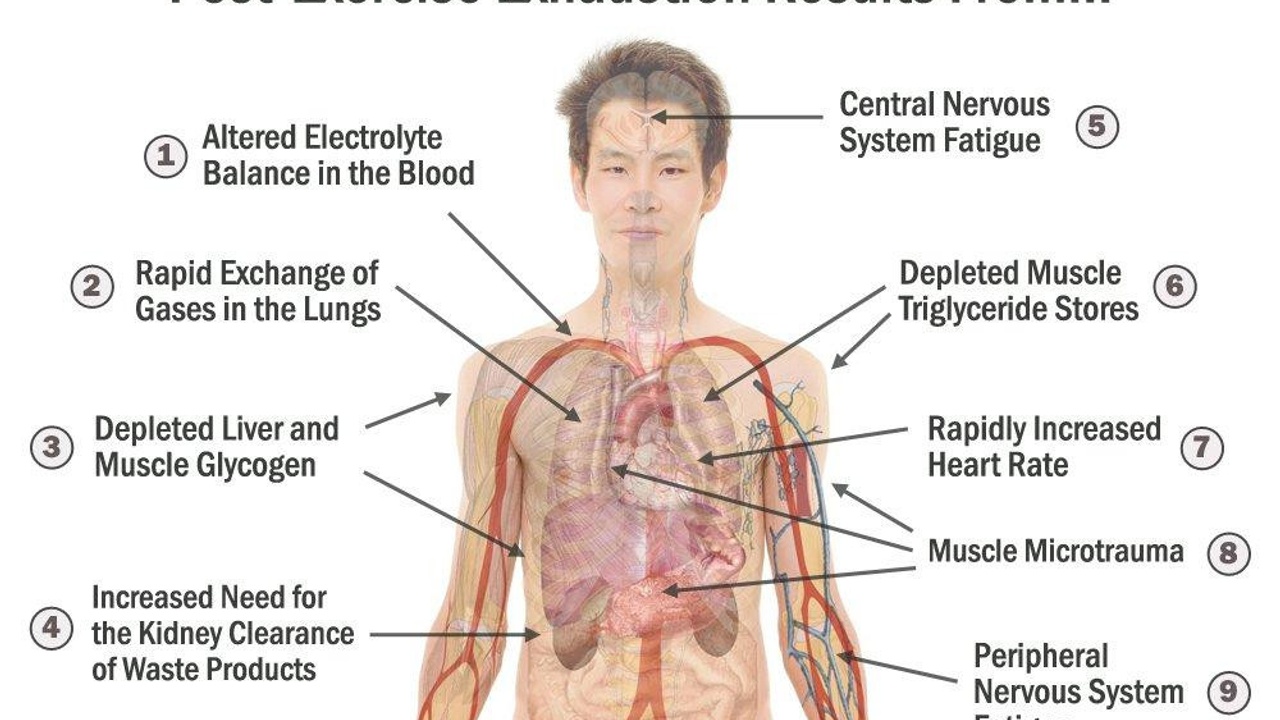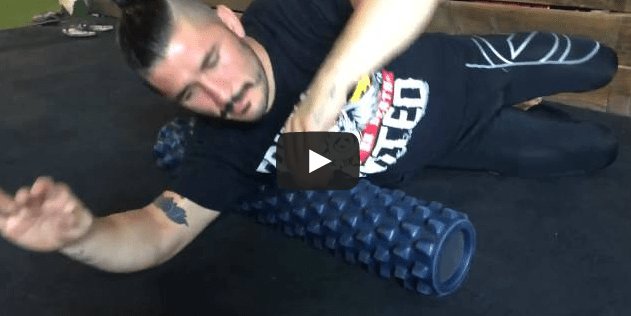
11 Ways to Avoid Over training and Poor Athletic Performance
By Corey Beasley
Why are so many athletes getting hurt these days? Some injuries cannot be avoided, but many are having a hard time keeping up with their workouts, they are breaking down, and not able to perform.
Training, working out, drilling, sparring, running, etc takes its toll on our bodies. Our muscles, nervous system, connective tissues and more are all pushed to their limit, broken down and need time to recover. If we do too much, our body cannot recover and it doesn't have time to build back up. Continue grinding for too long and your body will begin to break down.
Signs of Overtraining
- Reduction in Performance and Coordination
- Elevated Heart Rate
- Increased Blood Pressure
- Lethargic or Tired all the time
- Depression/Anxiety
- Reduced Sexual Desire
- Exhaustion
- Chronic Soreness or Pain
Research shows that only 2 weeks in an overtrained state can result in a 5% reduction in strength, 36% reduction in power output and can take 2-8 weeks to recover completely.
Ways to Combat Overtraining
Balanced Training Program - Skill, strength and conditioning needs to be a coordinated effort that controls the intensity, duration, frequency and timing of workouts. The old idea to 'go hard or go home' is simply an ego based philosophy that is hurting a lot of athletes. Some workouts should be less intense and focused on technique, drilling, etc. Other workouts should be more intense and may involve live goes, sparring, lifting or metabolic work. They key is finding a plan, monitoring that plan and adjusting as needed. Here are some tips on organizing your training schedule.

Monitor Recovery - Monitoring an athlete before, during and after their sessions may seem a bit excessive, but it is essential if you want to perform at your best. We can monitor the athletes' heart rate (daily morning HR, HR recovery between rounds) speed and power output (vertical/broad jump), body composition and more. Want to take it to the next level? There are a few apps that can monitor the athlete's vitals and give you a simple read out of their readiness for different types of exercise.
Quality Nutrition - Food is fuel. It gives us proteins, fats and carbohydrates that keep us moving everyday, but also provides micronutrients to help our body function, defend and repair itself efficiently. Good quality, whole foods provide a wide variety of vitamins, minerals, fiber and other things that help us think more clearly, recover faster, reduce inflammation and perform at our best. When we eat low quality, packaged foods we tend to get a high amount of sugars, processed oils and very little, if any, micronutrients/fiber. This can lead to nutrient deficiencies that affect our mood, sleep, sex drive, recovery and athletic performance.
Adequate Sleep - Sleep is the #1 way for us to reset and recover. Without it our bodies do not perform well. One study tracked the Stanford University basketball team for several months. Players added an average of almost 2 hours of sleep a night. The results? Players increased their speed by 5%. Their free throws were 9% more accurate. They had faster reflexes and felt happier. Other studies have shown similar benefits for football players and other athletes.
 Soft Tissue Therapy - Foam rollers, soft tissue , deep tissue, trigger point, and other manual therapy techniques are great ways to speed recovery and keep us healthy. We typically use foam rolling type techniques before warm ups or at home between sessions. A good massage therapist can be a life saver. Try to see them once per month for maintenace or once per week when your training becomes more intense.
Soft Tissue Therapy - Foam rollers, soft tissue , deep tissue, trigger point, and other manual therapy techniques are great ways to speed recovery and keep us healthy. We typically use foam rolling type techniques before warm ups or at home between sessions. A good massage therapist can be a life saver. Try to see them once per month for maintenace or once per week when your training becomes more intense.
Contrast Shower - Increased blood flow can help flush out lactic acid in sore muscles. If you are stiff, sore or simply run down toward the end of the week, contrast showers may help ya speed recovery. Simply let the water run over the sore area and alternate between bouts of cold and hot water. I usually do cold blast for 10-20 seconds, followed by 1 minute of hot water. It is an “eye opener”, but you typically go numb after the second cycle.
 Ice Baths - This one is an eye opening experience, but also one of the best recovery tools in our arsenal. Had some tough workouts lately? Fill your tub with ice water and submerge your body for 5-8 minutes. The first couple minutes are a shocking experience, but you will soon go numb and you will thank us afterwards.
Ice Baths - This one is an eye opening experience, but also one of the best recovery tools in our arsenal. Had some tough workouts lately? Fill your tub with ice water and submerge your body for 5-8 minutes. The first couple minutes are a shocking experience, but you will soon go numb and you will thank us afterwards.
Warm Water Bath - If you are wound up, anxious, heart rates elevated and your are just spent, a hot bath might be the answer. Great for the end of a day, after a long week or simply just to let your mind and body relax a bit. The increased blood flow can help speed recovery and the warm water is calming for the mind.
Dry Sauna - Saunas are typically used for weight cuts, but they also have great therapeutic benefits as well. Get a sweat going and sit in the dry sauna for about 5-10 minutes, followed by a 2-3 minute break. Do 3-6 intervals like this and see how your body reacts. Greg Mihovich walks us through his sauna tactics in this interview
Meditation - Whether you pray, perform breathing techniques, do guided meditation or similar, its hugely beneficial to take your brain somewhere else for awhile. Most of our minds are racing all day long and its nice to find a meditation method that allows you to unplug and simply relax. This can be as simple as focused, diaphragmatic breathing for 5-10 minutes. Check out Coach Wayland's Diaphragmatic Breathing Drill
 EMS - People think electrotherapy is mainly used for rehab, but it is also helpful for recovery. EMS can help muscles recover and feel better after strenuous activity by moving nourishment and waste more efficiently. We've started using the Marc Pro unit and are happy with the results.
EMS - People think electrotherapy is mainly used for rehab, but it is also helpful for recovery. EMS can help muscles recover and feel better after strenuous activity by moving nourishment and waste more efficiently. We've started using the Marc Pro unit and are happy with the results.
Days off - This is a big one for the exercise junkie, especially for an athlete juggling multiple over training sessions per day. Stress (exercise) breaks our bodies down. Our body then rebuilds to become stronger or more resistant to that stress, if proper rest and nutrition are made available. Lots of athletes and competitive people love to work hard and neglect taking proper time off to allow their bodies to recover. Every 8 weeks or so, take a 3-7 days off. Get out of town, disappear and relax.
Everybody likes to train hard, but recovering with equal intensity can turbocharge your results. With a well executed plan, you will improve faster, feel better and reduce the incidence of injury. Hopefully you can implement some of these strategies into your workouts. Keep us posted on your progress over training.




